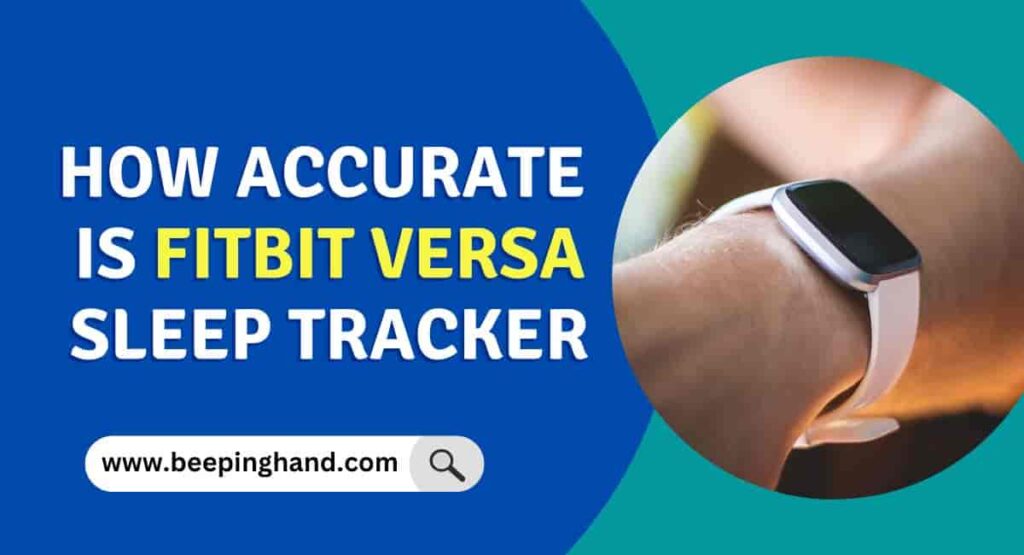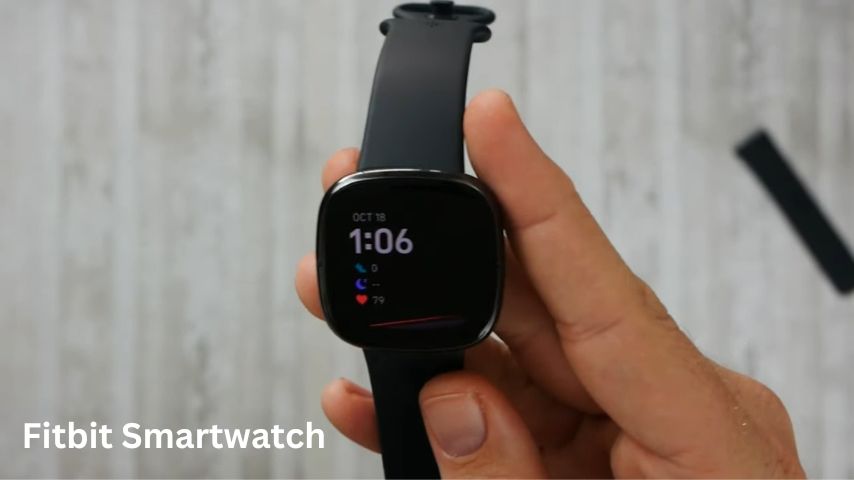Getting a good night’s sleep is crucial for our health and well-being. It is during this time that our bodies recover and recharge for the next day’s activities. However, many people struggle with sleep-related issues such as insomnia, sleep apnea, and other sleep disorders.
This is where the Fitbit Versa comes in, as it is a popular fitness tracker that comes with a sleep tracker. But How Accurate is Fitbit Versa Sleep Tracker? Here, we will explore the accuracy of the Fitbit Versa sleep tracker. So, you may read this.
How Accurate is Fitbit Versa Sleep Tracker

The Fitbit Versa sleep tracker is a dependable and practical solution for keeping tabs on your sleep patterns. With its advanced sensors and algorithms, it offers insights into your sleep stages, such as light sleep, deep sleep, and REM sleep.
How Does the Fitbit Versa Sleep Tracker Work?
The Fitbit Versa uses a combination of sensors to track your sleep. These sensors include an Accelerometer, which measures your movements, and a heart rate monitor, which measures your heart rate. By combining this data, the Fitbit Versa can determine when you’re awake, in light sleep, or in deep sleep.
How Accurate is Fitbit Versa Sleep Tracker?
Many users claim that the Fitbit Versa sleep tracker is incredibly accurate. However, some users have reported issues with the accuracy of the device. Still, it is said that any smartwatch brand doesn’t come with 100% accuracy when it comes to tracking sleeping.
It’s worth noting that the Fitbit Versa sleep tracker may not be 100% accurate in tracking your sleep. However, it provides valuable insight into your sleep patterns and can help you identify any issues with your sleep.
The accuracy of the Fitbit Versa sleep tracker can also be affected by various factors such as alcohol consumption, caffeine intake, and medications.
Factors Affecting Fitbit Accuracy
Several factors can influence the accuracy of sleep tracking on the Fitbit Versa –
1. Fitbit Versa model
Different models of Fitbit Versa may have varying sensor capabilities and algorithm updates, which can impact the accuracy of sleep tracking. Users should consider the specifications of their specific Fitbit Versa model when evaluating sleep data.
2. Sleep environment
The sleep environment, including ambient light and noise levels, can affect the Fitbit Versa’s ability to detect sleep stages accurately. Factors such as sleeping with a partner or pet may also influence the data.
3. Individual differences
Each person’s physiology and sleep patterns are unique. The Fitbit Versa Sleep Tracker uses general algorithms that might not fully capture the intricacies of an individual’s sleep stages, leading to variations in accuracy.
Read more: Connect Fitbit with Mobile
Tips for Improve if Fitbit Sleep Tracker not Accurate

If you want to get the most accurate results from your Fitbit Versa sleep tracker, there are a few things you can do:
- Wear the Device Correctly – To ensure the accuracy of the Fitbit Versa sleep tracker, make sure you wear it correctly. The device should be worn on your wrist, and the sensor should be in contact with your skin.
- Charge the Device – Make sure your Fitbit Versa is fully charged before you go to bed. A low battery can affect the accuracy of the sleep tracker.
- Keep the Device Updated – Keep your Fitbit Versa up-to-date with the latest software updates. These updates often include bug fixes and improvements to the sleep tracker.
- Develop a Consistent Sleep Schedule – Try to maintain a consistent sleep schedule, including the time you go to bed and wake up. This will help the Fitbit Versa sleep tracker provide more accurate results.
Wrapping Up
This article is all about How Accurate is Fitbit Versa Sleep Tracker. the Fitbit Versa sleep tracker is a valuable tool for monitoring your sleep patterns. While it may not be 100% accurate, it provides useful insights into your sleep duration and quality. By using the Fitbit Versa consistently and incorporating healthy sleep habits, you can optimize your sleep and enhance your overall well-being.
If you have any queries then you can ask in the comment box. We’ll answer all your questions. You may read more about Fitbit Versa 2 Not Tracking Steps or Heart Rate, Factory Reset Fitbit Smartwatch.
FAQ’s How Accurate is Fitbit Versa Sleep Tracker
How does the Fitbit Versa track my sleep?
The Fitbit Versa uses a combination of sensors, including an accelerometer and a heart rate monitor, to track your sleep. By measuring your movements and heart rate, the device can determine when you’re awake, in light sleep, or in deep sleep.
Can the Fitbit Versa sleep tracker be affected by external factors?
Yes, the accuracy of the Fitbit Versa sleep tracker can be affected by external factors such as alcohol consumption, caffeine intake, and medications.
Can the Fitbit Versa sleep tracker detect sleep disorders?
The Fitbit Versa sleep tracker can provide insight into your sleep patterns and identify any issues with your sleep. However, it is not a substitute for a medical diagnosis of a sleep disorder.
How can I improve the accuracy of the Fitbit Versa sleep tracker?
To improve the accuracy of the Fitbit Versa sleep tracker, you can wear the device correctly, charge the device before going to bed, keep the device updated, and maintain a consistent sleep schedule.
Can I use the Fitbit Versa sleep tracker without wearing the device on my wrist?
No, the Fitbit Versa sleep tracker needs to be worn on your wrist with the sensor in contact with your skin to track your sleep accurately.
What to do if the Fitbit sleep tracker is not accurate?
If your Fitbit sleep tracker is not accurate, you can try these steps –
1. Check Fitbit placement on your wrist.
2. Update firmware and app.
3. Adjust sleep sensitivity settings.
4. Review sleep logs for discrepancies.
5. Consider environmental factors that may impact accuracy.
6. Contact Fitbit support for further assistance.